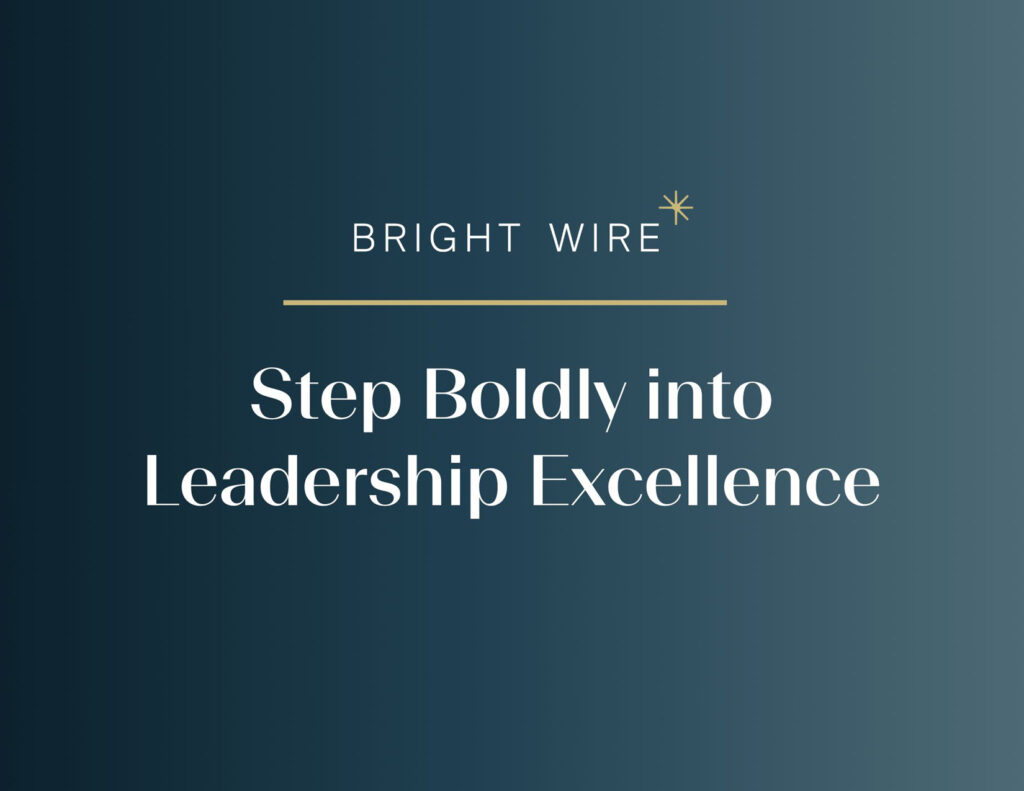How to Choose an Executive Coach or an Executive Coaching Firm
An increased interest in the coaching profession has resulted in many types of “coaches” flooding the market.
Coaching is becoming widely recognized as an attractive profession dedicated to enabling performance and potential. This realization has resulted in many industries and individuals claiming the title of “coach” to market their services, products, or accreditations.
At Bright Wire Leadership, we understand the draw to this rewarding work and, at the same time, this surplus in interest has us concerned. While we can appreciate the draw to becoming a coach (it is truly rewarding work), we notice a trend where under-qualified people are calling themselves a “coach”, grabbing quick online training or even retitling themselves arbitrarily without any form of credential or designation.
Although this signals the value of professional coaching is understood, it also poses a risk to the integrity of the profession and the industry standards as a whole.
As highly-qualified and experienced professional coaches, not only is this topic near and dear to our hearts, but it’s an important conversation to be had in today’s world. We are committed to upholding the integrity of the coaching profession and to equipping leaders and companies with the highest-quality coaching experience. As such, we wanted to share our top criteria when assessing an executive coaching option to help you, as an organization seeking a professional coaching partner or a leader seeking coaching services, decipher who you should partner with in your development journey.
Qualifications
Ensure that the executive coach, or the executive coaching firm you decide to work with, has accreditations and certifications with reputable sources. Our team is certified by the International Coach Federation (ICF) – which is the international gold standard for coaching practices. Our coaches have undergone hundreds of hours to learn and apply the skills of coaching and deeply understand how to best help leaders and organizations uncover their full potential.
Experience
It’s important that your executive coach has enough business knowledge to support you in your leadership development needs. Too little business experience could lead to a narrowed focus, or the omission of potential opportunities. Broad and varied people-related experience (ideally in Human Resources, Organizational Effectiveness or Talent Management) can help inspire you to create well-thought conclusions, high-value solutions or provide credible diverse options to consider. Remember – your executive coach should be helping you accomplish your development objectives and deliver business results – so ensure that your actions are founded in strategic rationale. Take time to learn about your potential executive coach’s background, understand if they have held leadership positions in companies before (indicating firsthand experience) or, are they more book smart and theory-based in their knowledge and approach? Use your time effectively to ensure you are informed about your potential executive coach’s experience.
Longevity
You want to work with an executive coach that has actual experience in coaching. Too often people feel their experience and expertise in other people-related industries can be quickly and effectively transferred into coaching – which is possible – but not always likely. Assuming expertise in one area translates into another without credible experience is a risk to you and your development. There are many skilled engineers, communications professionals, health care workers, etc. who are seeking a career change, realize they care about helping people, and then decide to be a professional executive coach. They may be great coaches but the depth of their experience may limit the possibilities that can be co-created through your coaching partnership.
Team
Finally, assess the potential network or team that your executive coach can bring. A connection to a skilled team provides the opportunity to tap into an even broader base of collective experience and strengthens, diverse perspectives and resources to which you can benefit from.
At Bright Wire Leadership, our experienced professional certified coaches work with top-tier organizations across Alberta, Canada and North America to create high-performance cultures, accelerate leadership development strategies, and drive results. We pride ourselves in having over 100 cumulative years of experience, multi-industry and multi-disciplinary business knowledge, and numerous accredited coaching and leadership assessment credentials. We are proud of the work we do supporting leadership development from an individual level all the way through to the organizational level.
Connect with us to learn more about our experience and how we can support you.
At Bright Wire, you chart the course, we light the way.






